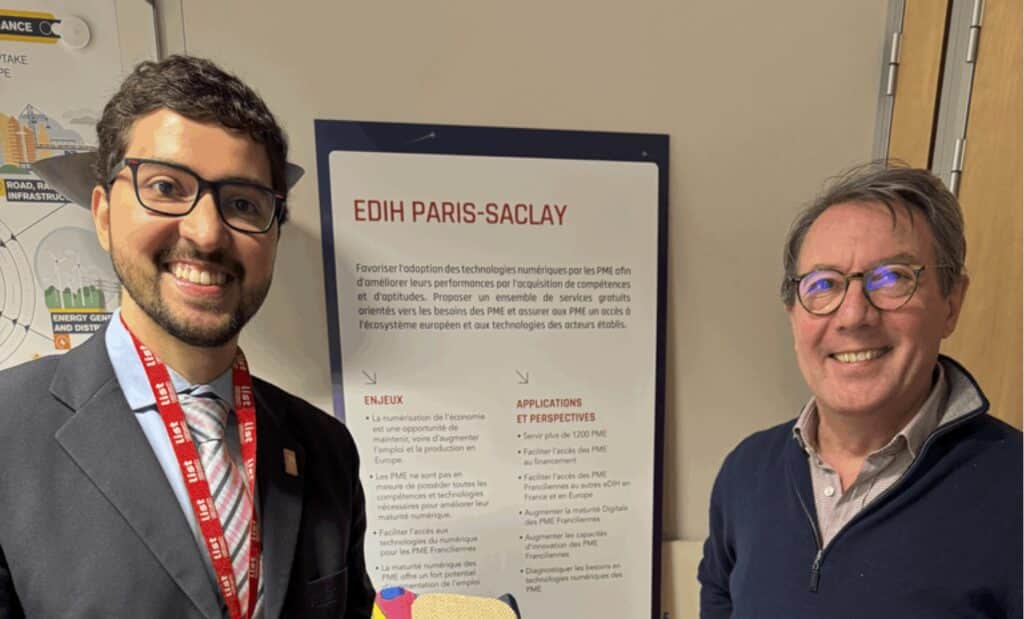The SPIDER Twinning Programme crossed a significant milestone on 3 December, by bringing the participating organisations together for its first online networking event.
Eight of the ten Research and Innovation (R&I) hubs selected under the programme connected to present their organisations and ecosystems, learn more about the action plan that they will be developing with their pair, and start refining the collaboration through a co-creation exercise in a dedicated breakout room.
Who joined the session?
The session counted on participants from both sides of the Atlantic and with at least one organisation from each Twinning Pair:
- The Venture Builder – Portugal
- KrugerLabs – Ecuador
- EDIH Rheinland – Germany
- CERTI – Brazil
- CONNECT5 – Portugal
- Tecnosinos – Brazil
- Parque de Ciência e Tecnologia Guamá- Brazil
- EDIH tech4efficiency– Spain
What was the agenda for the online networking event?
To start the session, each selected hub presented its organisation and the work it is developing in its ecosystems. This was a highly interactive moment, with participants asking questions about each other’s work and exchanging contact details.
The programme team then proceeded to explain some directions in which each Twinning Pair could develop the Action Plan, a document that will structure their collaborations in digital technologies, which should ideally benefit from the BELLA infrastructure.
Finally, the organisations were connected with their Twinning Pairs in dedicated breakout rooms and invited to start structuring their collaboration through a co-creation exercise. Facilitated via the Miro board, this exercise allowed participants to define the main goals of their collaboration, the concrete and tangible results they wanted to achieve, and which steps should be taken in order to meet them.
What were the main takeaways from the session?
The session allowed participants to align on the direction of their collaborations, with the following ideas for activities being established:
- Calls for ideas, hackathons, and tech challenges;
- Joint acceleration / internationalization/soft-landing programmes;
- Short-term exchanges (Staff, companies/researchers, mentors, and experts);
- Events to connect selected startups with selected players from the partner’s ecosystem.
What are the next steps?
The organisations will now narrow down their ideas and structure the collaborations through the Action Plan. Working sessions to refine the early drafts of the document will also be scheduled in early 2025, with the Twinning Pairs who could not connect through the session receiving support earlier.
The organisations will then have another chance to connect through a second online networking event, currently scheduled for March 2025.



